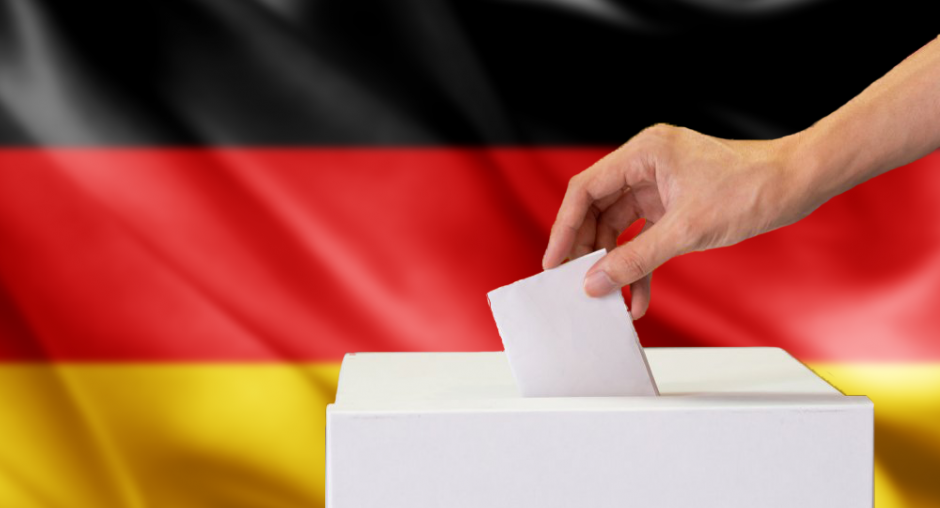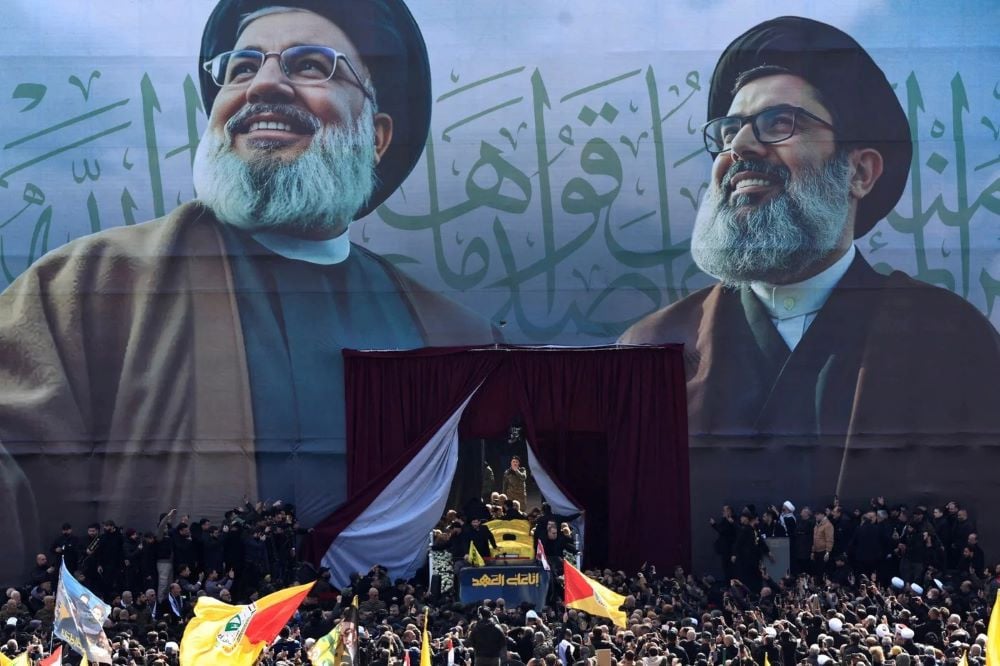Listen to article
Germans were voting in a national election on Sunday that is expected to restore power to Friedrich Merz’s conservatives, while the far-right Alternative for Germany (AfD) party is forecast to achieve its best result yet in Europe’s ailing economic powerhouse.
Merz’s CDU/CSU bloc has consistently led polls but is unlikely to win a majority given Germany’s fragmented political landscape, forcing it to sound out coalition partners.
Those negotiations are expected to be tricky after a campaign that exposed sharp divisions over migration and how to deal with the AfD in a country where far-right politics carries a particularly strong stigma because of its Nazi past.
That could leave unpopular Chancellor Olaf Scholz in a caretaker role for months, delaying urgently needed policies to revive Europe’s largest economy after two consecutive years of contraction and as companies struggle against global rivals.
Merz cast his vote in the western town of Arnsberg on Sunday morning. Asked how election day would go, he smiled and replied: “It will go well.”
Scholz voted in the eastern town of Potsdam.
A caretaker government for months would create a leadership vacuum in the heart of Europe even as it deals with a host of challenges, including U.S. President Donald Trump’s threats of a trade war and attempts to fast-track a ceasefire deal for Ukraine without European involvement.
Germany, which has an export-oriented economy and has long relied on the U.S. for its security, is particularly vulnerable.
Germans are more pessimistic about their living standards now than at any time since the financial crisis in 2008. The percentage who say their situation is improving dropped sharply from 42% in 2023 to 27% last year, according to pollster Gallup.
Attitudes towards migration have also hardened in a profound shift in German public sentiment since its “Refugees Welcome” culture during Europe’s 2015 migrant crisis.
Polls opened at 0800 local time (0700 GMT) and will close at 1800 (1700 GMT) when vote counting will start and exit polls will be released.
Merz “knows something about the economy,” said voter Brigitte Klute after braving the cold to cast her vote in Arnsberg, Merz’s hometown.
“He needs to rebuild our country a little better. So much has been lost,” she said.
Musk weighs in
Sunday’s election follows the collapse last November of Scholz’s coalition of his centre-left Social Democrats (SPD), the Greens and pro-market Free Democrats (FDP) in a row over budget spending.
The SPD is heading for its worst result since World War Two.
The election campaign has been dominated by fierce exchanges over the perception that irregular immigration is out of control, fuelled by a series of attacks in which the suspected perpetrators were of migrant origin.
A Syrian refugee was arrested over the stabbing of a tourist at Berlin’s Holocaust memorial on Friday. Prosecutors said he had been planning “to kill Jews”.
The campaign has also been overshadowed by the unusually forceful show of solidarity by members of the Trump administration – including Vice President JD Vance and tech billionaire Elon Musk – for the anti-migrant AfD and broadsides against European leaders.
Just before the polls opened Musk again endorsed the AfD, posting a clip of regional AfD leader Bjoern Hoecke making a speech in which he said “Germany is our country, our land, our nation… let’s take our country back!” from the globalists. Hoecke has twice been fined for using a Nazi-era slogan and is deemed so radical a court said he could be described a fascist.
The 12-year-old AfD is on track to take second place for the first time in a national election.
“I’m completely disappointed in politics, so maybe an alternative would be better,” said retired Berlin bookkeeper Ludmila Ballhorn. The 76 year old, who plans to vote AfD, said she was struggling to live on her state pension of 800 euros ($836.64) a month. “Rents and all other costs have soared,” she added.
The AfD, however, is unlikely to govern for now because all mainstream parties have ruled out working with the party, though some analysts believe it could pave the way for an AfD win in 2029.
The strength of the AfD, along with a small but significant vote share for the far-left and the decline of Germany’s big-tent parties, is increasingly complicating the formation of coalitions and governance.
Coalition options
EU allies are cautiously hopeful the elections might deliver a more coherent government able to drive forward policy at home and in the bloc.
Some also hope Merz will reform the “debt brake” constitutional mechanism that limits government borrowing and that critics say has strangled new investment.
The most likely outcome of the election, say analysts, is a tie-up of Merz’s conservative bloc of Christian Democrats (CDU) and Christian Social Union (CSU) with the SPD, which is polling in third place in another uneasy “grand coalition”.
Polls, however, suggest another three-way coalition may be necessary if several small parties make the 5% threshold to enter parliament, complicating talks.
“A lot of my friends are likely going to vote for the conservatives because this government didn’t work so well and Merz’s international standing is quite good,” said 26-year-old civil servant Mike Zeller.
“I just hope enough parties agree to a government so they can leave the AfD out.”




